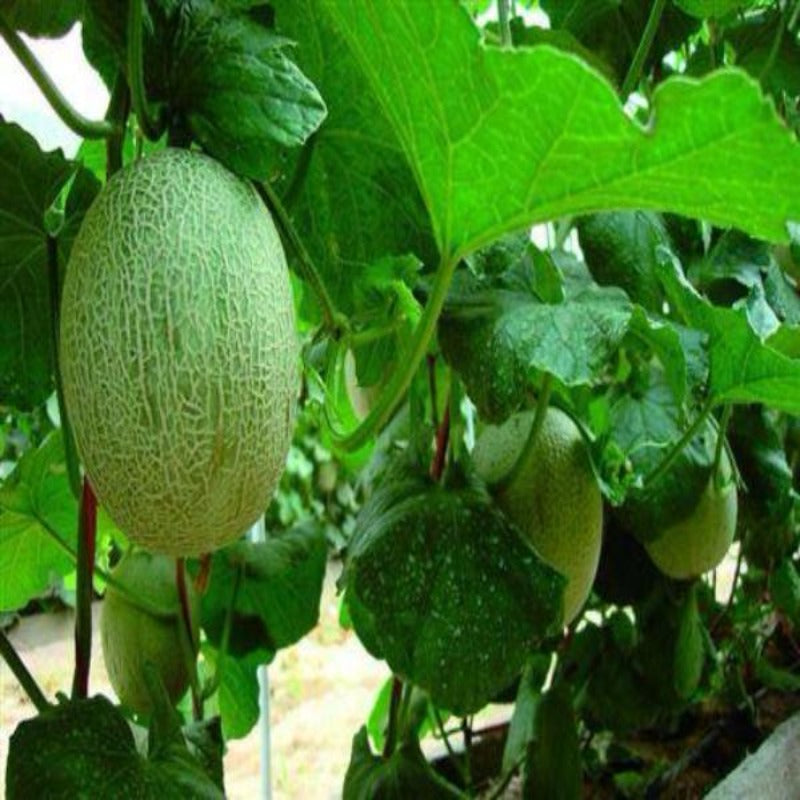- Species and varieties: Cantaloupe melon (Cucumis melo var. cantalupensis) is a variety of muskmelon. There are several popular varieties of cantaloupe melon seeds, including 'Hale's Best', 'Ambrosia', and 'Athena'. Each variety has its own unique characteristics in terms of flavor, texture, and growing requirements.
- Hybrid or heirloom: Cantaloupe melon seeds can be either hybrid or heirloom. Hybrid varieties are bred for specific traits such as disease resistance and uniformity, while heirloom varieties are open-pollinated and have been passed down through generations. Examples of hybrid varieties include 'Athena' and 'Ambrosia', while 'Hale's Best' is a well-known heirloom variety.
- Pruning and training: Pruning is not typically necessary for cantaloupe melons, but training the vines to grow on a trellis can help save space and improve air circulation, reducing the risk of disease. Pinching off the growing tips of the vines can encourage the plant to produce more lateral branches and potentially more fruit.
- Fertilization needs: Cantaloupe melons benefit from a balanced fertilizer applied at planting time. A 10-10-10 (N-P-K) fertilizer is recommended. Additional side-dressing with a nitrogen-rich fertilizer can be done when the vines begin to run and again when the fruits start to develop. Organic options such as compost or well-rotted manure can also be used to enrich the soil.
- Hardiness zones: Cantaloupe melons are best suited for USDA hardiness zones 4-11. They thrive in warm climates and require a long growing season with plenty of sunshine.
- Climate requirements: Cantaloupe melons require a warm climate with temperatures between 70-90°F (21-32°C) for optimal growth. They need full sun exposure and well-drained soil with a pH between 6.0 and 6.8. Consistent watering is essential, especially during the fruiting stage, but overwatering should be avoided to prevent root rot.






